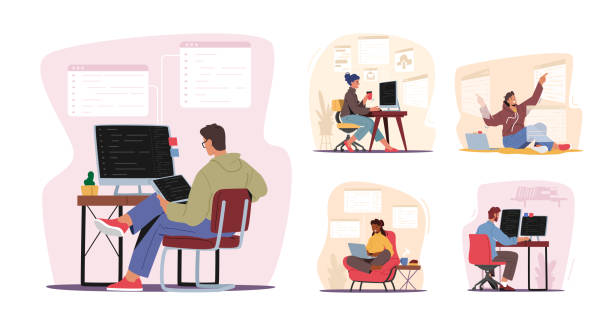As Artificial Intelligence (AI) becomes increasingly integrated into various sectors, the nature of human-AI collaboration projects is evolving. These collaborations, which blend human creativity with AI’s computational prowess, are producing groundbreaking innovations across industries. However, they also introduce unique risks related to intellectual property (IP) and ethical considerations. To safeguard these projects, specialized insurance solutions are emerging, designed to address the multifaceted challenges posed by human-AI partnerships. Here’s a look at how insurance is adapting to protect these collaborations and the critical aspects it covers.
Table of Contents
ToggleUnderstanding Human-AI Collaboration Projects
Human-AI collaborations involve joint efforts where AI systems and human expertise work together to achieve objectives that neither could accomplish alone. These projects can range from developing new AI-driven technologies to creating innovative business solutions or artistic endeavors. The synergy between human creativity and AI’s data-driven insights often results in valuable intellectual property and novel ethical challenges.
Intellectual Property Risks and Protections
In human-AI collaborations, intellectual property (IP) is a primary concern. The innovative outputs of these collaborations, whether they are new algorithms, software, or creative works, need robust protection:
- Ownership and Attribution
Determining ownership and attribution of IP in human-AI projects can be complex:
- AI Contributions: Traditional IP laws were not designed to address contributions made by AI. This raises questions about how to attribute ownership and rights when AI plays a significant role in creating something novel.
- Contractual Agreements: Insurance policies can help manage these complexities by including clauses that clarify IP ownership and attribution. This ensures that all parties involved, including those leveraging AI, have clear agreements on how IP is managed and protected.
- Patent and Copyright Issues
Securing patents and copyrights for AI-generated innovations can be challenging:
- Novelty and Non-Obviousness: For patents, innovations must be novel and non-obvious. Determining whether an AI-generated invention meets these criteria can be complex and may require specialized legal and technical expertise.
- Copyright Claims: AI-generated content, such as artworks or written material, raises questions about copyright ownership. Insurance solutions can offer coverage for legal disputes and potential claims related to IP rights.
- IP Theft and Misuse
With the increasing value of AI-driven innovations, there is a heightened risk of IP theft and misuse:
- Protection Measures: Insurance can provide protection against theft or unauthorized use of IP. This includes coverage for legal costs associated with defending against IP theft claims or pursuing actions to protect intellectual property.
Ethical Risks and Insurance Solutions
Human-AI collaborations also present unique ethical challenges, which can have significant implications for insurance coverage:
- Bias and Discrimination
AI systems can unintentionally perpetuate or amplify biases present in the data they are trained on:
- Liability for Discrimination: If an AI system used in a project results in discriminatory outcomes or biased decisions, determining liability can be complex. Insurance policies can address these risks by covering potential liabilities and legal costs associated with discrimination claims.
- Ethical Compliance: Policies may include provisions for ensuring compliance with ethical standards and guidelines, helping to mitigate the risks associated with biased AI systems.
- Transparency and Accountability
Ensuring transparency and accountability in AI decision-making processes is critical:
- Decision-Making Processes: Insurance can help address risks related to the lack of transparency in AI decision-making. This includes coverage for claims arising from failures to provide clear explanations for AI-driven decisions or actions.
- Accountability Measures: Policies can support measures that ensure accountability in AI collaborations, including documentation and reporting requirements that track AI system performance and decision-making processes.
- Data Privacy and Security
The use of AI often involves processing vast amounts of data, raising concerns about data privacy and security:
- Data Breaches: Insurance policies can offer protection against data breaches and cyberattacks that compromise sensitive information. This includes coverage for the costs of data breach responses, legal liabilities, and potential fines.
- Privacy Compliance: Policies may also cover the costs associated with ensuring compliance with data protection regulations, such as GDPR or CCPA, in the context of AI data handling.
Navigating the Insurance Landscape
As the landscape of human-AI collaboration projects continues to evolve, so too will the insurance solutions designed to protect these endeavors:
- Tailored Insurance Solutions
Customized insurance policies that address the specific needs and risks associated with human-AI collaborations are becoming more common:
- Bespoke Coverage: Insurers are developing specialized products that cater to the unique challenges of AI-driven projects, including IP protection, ethical considerations, and data security.
- Consultative Approach: Engaging with insurance providers who understand the complexities of AI and human collaboration can help organizations secure appropriate coverage that aligns with their project requirements.
- Ongoing Risk Assessment
Continuous risk assessment and management are crucial for maintaining effective insurance coverage:
- Regular Reviews: Regularly reviewing and updating insurance policies to reflect changes in project scope, technology, and regulatory requirements ensures that coverage remains relevant and comprehensive.
- Proactive Risk Management: Implementing proactive risk management strategies, such as ethical AI practices and robust data security measures, can help mitigate potential risks and reduce insurance costs.
The Future of Insurance in Human-AI Collaboration
As AI technology continues to advance, the insurance industry will need to adapt to new challenges and opportunities:
- Innovation in Coverage: The development of innovative insurance products and solutions will be essential to address emerging risks and ensure comprehensive protection for human-AI collaborations.
- Enhanced Collaboration: Collaboration between AI developers, legal experts, and insurers will drive the creation of effective insurance solutions that support the responsible and ethical use of AI technology.
Conclusion
Insurance for human-AI collaboration projects is a dynamic and evolving field, addressing the unique risks associated with intellectual property and ethical considerations. By providing specialized coverage and protection, insurance solutions are helping to navigate the complexities of AI-driven innovations. As technology and collaboration models continue to advance, ongoing adaptation and innovation in insurance will be key to ensuring that human-AI partnerships thrive while managing associated risks effectively.

